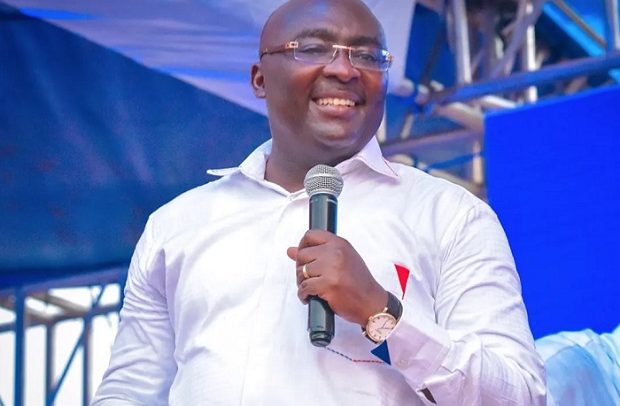Dr. Mahamudu Bawumia
The 2024 Presidential Candidate of the New Patriotic Party (NPP), Dr. Mahamudu Bawumia, has attributed the party’s defeat in the last general election to a series of unpopular decisions, including the controversial E-Levy, the domestic debt exchange programme commonly known as the “haircut”, and the stalled National Cathedral project.
Speaking to a packed auditorium at the Takoradi Technical University during the NPP’s nationwide “In All Things, Give Thanks to God” tour, Dr. Bawumia admitted that the NPP lost touch with the people and paid a heavy political price.
He described the defeat as a painful but necessary lesson for the party as it works to rebuild ahead of the 2028 elections.
“If we consider all the studies we have done so far as to why we lost, one of the big issues was that we did not listen to the people,” he said candidly.
“We ignored your voices and exhibited arrogance. There was an arrogance of power,” he added.
He revealed that the leadership failed to heed calls for a reshuffle of government appointees, ignored widespread opposition to the E-Levy, and pushed through a deeply unpopular domestic debt exchange programme that hurt hundreds of thousands of Ghanaians.
“Ghanaians told us they did not like the E-Levy, but we went ahead anyway. Meanwhile, there are about 16 million mobile money subscribers. So literally, almost every voter was affected,” he explained.
On the domestic debt exchange, Dr. Bawumia said, “We angered many bondholders—about eight hundred thousand people. Considering their dependents, it affected over two million Ghanaians. It was a huge political mistake.”
Another major source of public anger, he noted, was the handling of the National Cathedral project. Dr. Bawumia expressed regret that despite sinking about $58 million into the project, it remained incomplete, fueling public outrage against the government.
“The National Cathedral caused a lot of rage. People could not understand why so much money was spent with so little progress,” he lamented.
Dr. Bawumia also highlighted economic hardships as another contributing factor, citing the rise in the cost of living, soaring prices of goods, and last-minute increases in fuel prices just days before the elections.
“When fuel prices increased three days to the elections, it added salt to injury. Drivers and transport operators were angry, and it had an impact at the polls,” he said.
The former Vice President also touched on the government’s failure to pay allowances to personnel under the Nation Builders’ Corps (NaBCo), the Afforestation Programme, and the School Feeding Programme, which further alienated key voter groups.
“NaBCo members alone were about one hundred thousand, and afforestation workers about seventy thousand. These groups turned their anger toward us,” he pointed out.
Dr. Bawumia dismissed claims that his Muslim faith played a role in the NPP’s defeat, labeling such assertions as baseless and unsupported by evidence.
“I am happy that there is no religious factor, and no tribal factor that caused our defeat. It was simply a matter of our decisions hurting the very people we needed to serve,” he said.
He noted that voter turnout was historically low across the country, with about 2.1 million traditional NPP supporters choosing not to vote.
“From Axim all the way to Zebilla, turnout was low. It was unprecedented in Ghana’s political history. People stayed away not because of tribalism or religion, but because they were simply unhappy,” Dr. Bawumia stressed.
He acknowledged that the party also failed to deliver major infrastructural projects in its strongholds, particularly in the Western Region, where projects such as the PTC Interchange and the Takoradi Market Circle were left unfinished.
He cited similar concerns about the neglected Mpohor and Shama road projects.
In response to the defeat, Dr. Bawumia said the NPP commissioned the Mike Oquaye Committee to produce a comprehensive report on the causes of the loss and propose recommendations for reforms.
He also hinted at possible changes to the party’s delegate system, noting that internal party dynamics contributed to the electoral defeat.
Despite the setbacks, Dr. Bawumia expressed optimism about the future, declaring that the NPP would regroup and come back stronger.
“I believe 2028 is the year for the elephant. We have learned painful lessons, but we will not repeat the same mistakes,” he declared to loud applause.
The NPP’s National Chairman, Stephen Ntim, urged party faithful to remain united and focused, saying, “There is hope for the future if we stick together.”
General Secretary, Justin Frimpong Kodua, encouraged members to submit proposals for constitutional amendments ahead of the party’s extraordinary national delegates conference scheduled for July this year.
From Emmanuel Opoku, Takoradi


